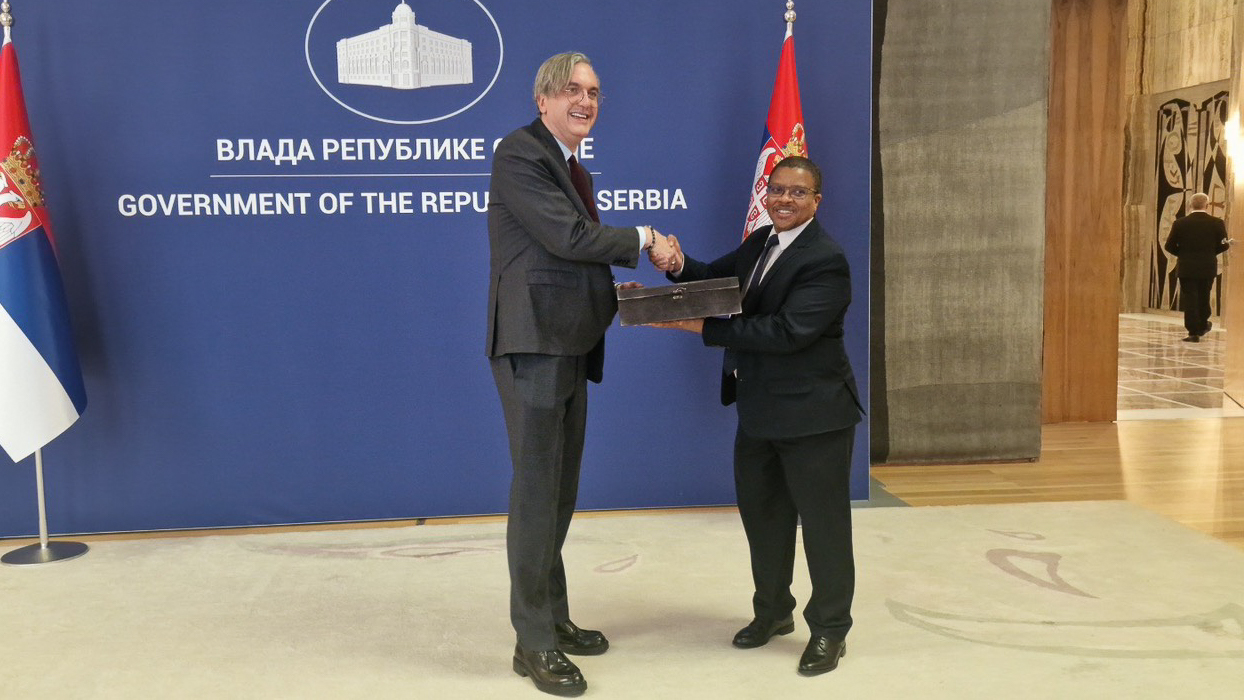Eswatini Opens New Prospects for Cooperation with Over 50 African Countries
Oct 21, 2024
The ICT sector, agriculture, energy, pharmaceuticals, chemical industry, tourism, higher education, and digital skills have joint potential for enhancing economic cooperation between Serbia and the Kingdom of Eswatini, it was highlighted at the roundtable "Serbia and Eswatini—Innovation as a Driver of Growth.”
The roundtable, held at the Palace of Serbia, featured speeches from the President of the Republic of Serbia, Aleksandar Vučić, King Mswati III of Eswatini, the President of the Chamber of Commerce and Industry of Serbia, Marko Čadež, and Sibani Mnongomezulu, CEO of Eswatini's Investment Promotion Authority.
President Vučić emphasized that Serbia is among the top 50 global exporters of high-tech products in the ICT sector, positioning the country as a regional leader in innovation technologies. He noted that King Mswati III has also recognized scientific and technological advancement as the cornerstone of Eswatini’s strategy, much like Serbia.
King Mswati III highlighted that increasing trade between Serbia and the Kingdom of Eswatini is essential for strengthening bilateral relations and offers opportunities for deepening economic cooperation.
Marko Čadež stressed the significance of King Mswati III's visit, as it opened new perspectives for Serbia. He emphasized that Africa is a continent of friendship, respect, and future growth in the global economy.
"This visit is particularly important because it opens new perspectives. Today's forum is crucial not only for the market Eswatini represents but also for our joint cooperation with over 50 African countries, which we can reach through collaborative projects," Čadež said.
He pointed to numerous proposals for significant projects between the two countries, ranging from collaboration between mining institutes to partnerships in agriculture, agricultural machinery, and the chemical industry.
Čadež added that companies like Galenika, in the pharmaceutical sector, and Elixir, in fertilizer and biocide production, have already shown interest in collaborating with Eswatini. Serbian companies specializing in disinfection and water purification have also expressed interest.
According to him, Eswatini is making significant efforts to transition its agriculture from primary production to commercial farming, which presents opportunities for Serbian companies, especially those involved in irrigation systems and agricultural machinery.
"I'm especially proud that we had the chance yesterday to host the Eswatini delegation at our Center for Digital Transformation and that today we're discussing new technologies and their applications through joint projects," Čadež added.
He emphasized that the leaders of both countries, by fostering strong bilateral relations and personal friendships, create the best framework for encouraging economic cooperation.
"It's up to us to fill that framework with successful business and investments," Čadež concluded.
Sibani Mnongomezulu, CEO of Eswatini's Investment Promotion Authority, stressed that the current trade volume between Eswatini and Serbia is small, and enhancing it is a priority for his country. To that end, it was agreed with PKS that an eight-member Serbian delegation will visit Eswatini in April next year to explore further cooperation opportunities.
The roundtable also featured presentations on the investment conditions and business environments in both countries, the Expo 2027 project, and the signing of multiple memoranda of understanding between Serbia and the Kingdom of Eswatini in various fields.


LATEST NEWS
